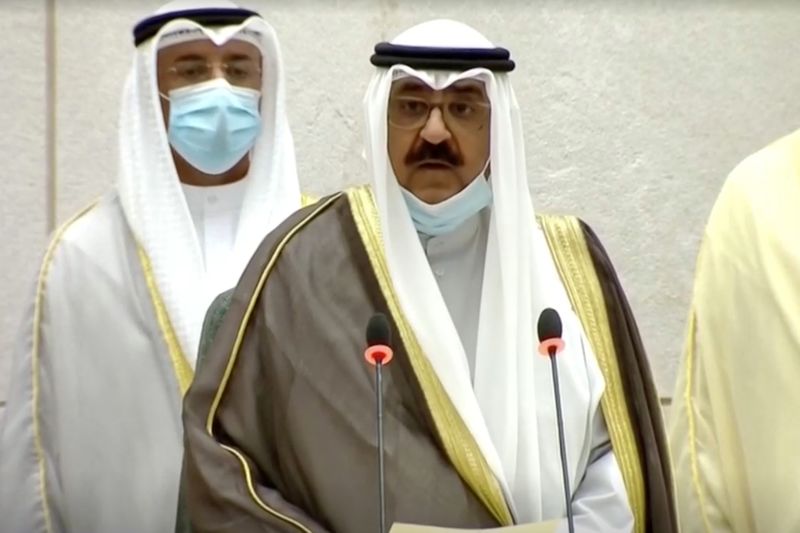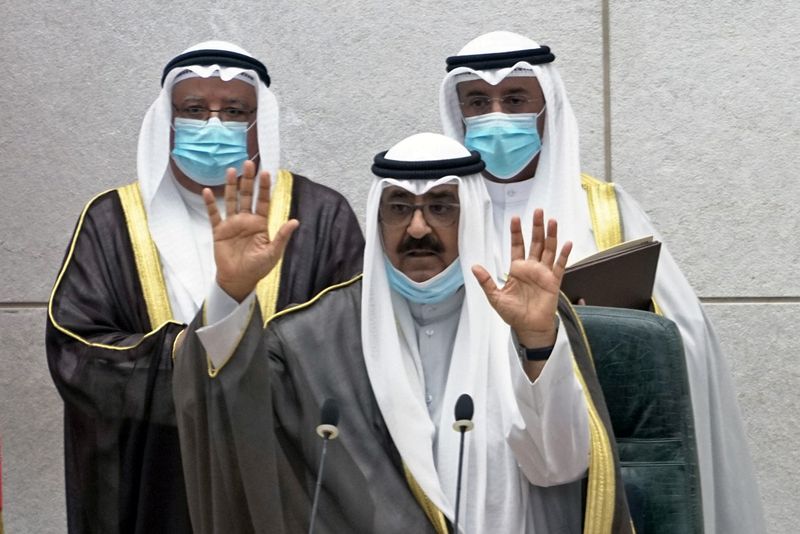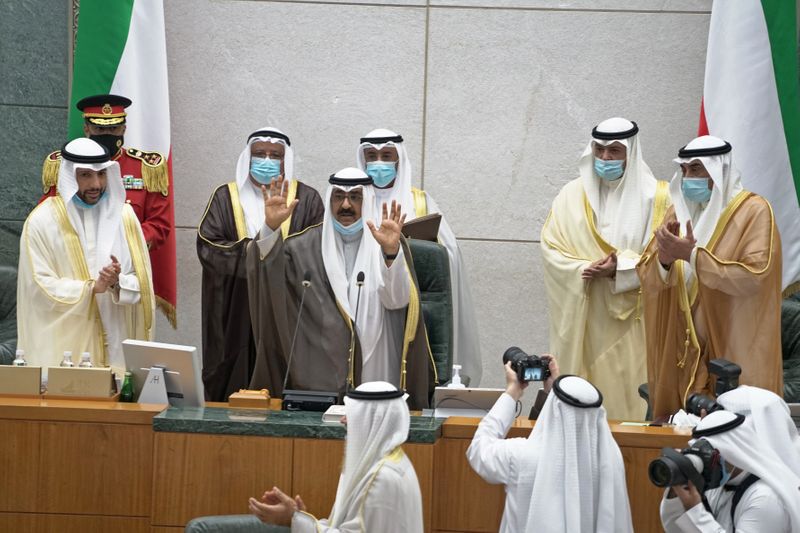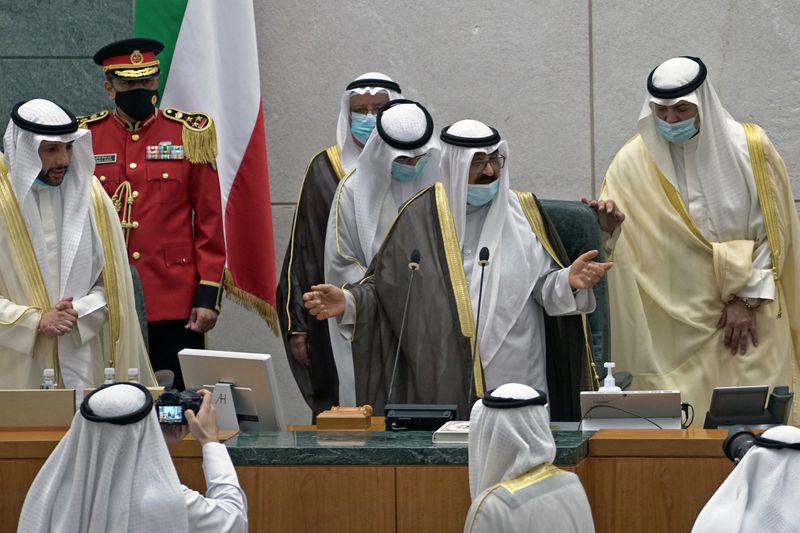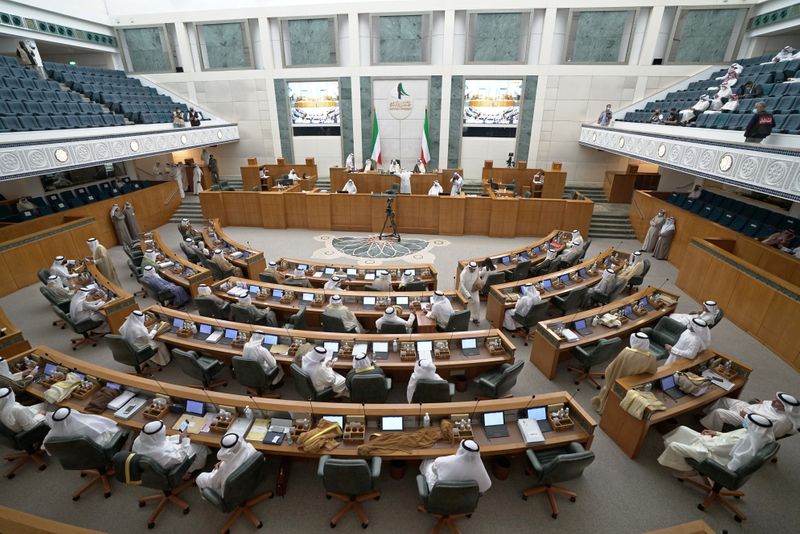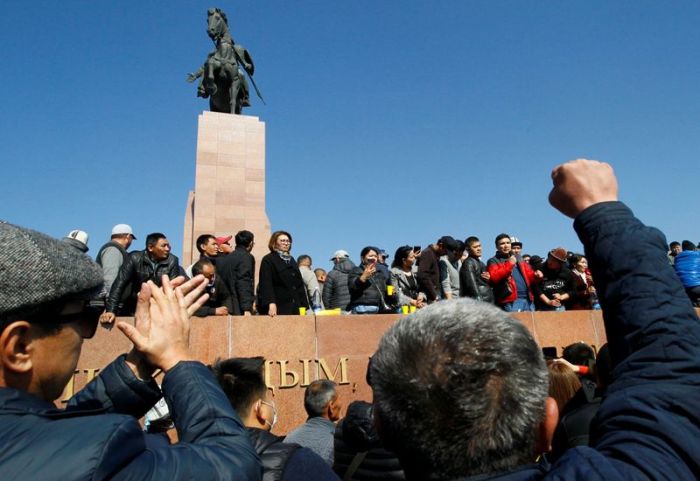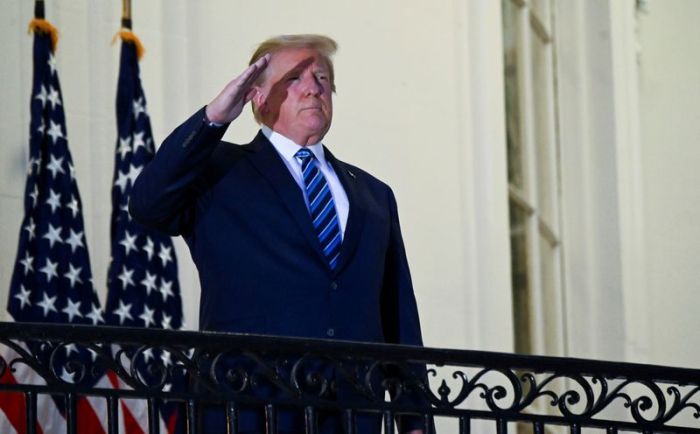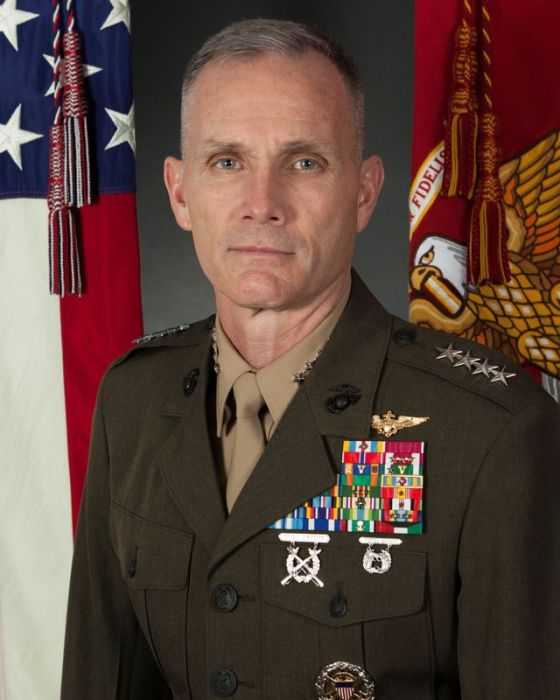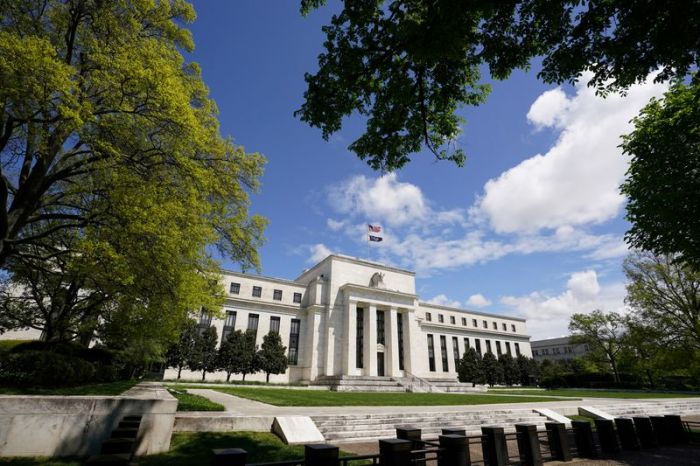KUWAIT (Reuters) – Kuwait’s new Crown Prince Sheikh Meshal al-Ahmad al-Sabah took the oath of office in parliament on Thursday, pledging the Gulf Arab state’s commitment to democracy and peace and calling on Kuwaitis to shun divisions.
The assembly unanimously endorsed the octogenarian Sheikh Meshal for the role in what has been a smooth succession that retained power firmly within the ruling family’s oldest ranks following last week’s death of Emir Sheikh Sabah al-Ahmad.
New ruler Emir Sheikh Nawaf al-Ahmad, 83, assumed power last Wednesday in the U.S.-allied OPEC member state as it faces a liquidity crunch caused by low oil prices and the COVID-19 pandemic against the backdrop of continued tensions between larger neighbours Saudi Arabia and Iran.
Sheikh Meshal, addressing parliament, said Kuwait would uphold its regional and international commitments and “its path of peace and democratic approach”.
He pledged to “raise the banner of popular participation and promote a tolerant spirit that shuns division.”
Diplomats and analysts say that due to Sheikh Nawaf’s low-key style and age, he may delegate a larger portion of responsibilities to Sheikh Meshal, a forceful figure who had been deputy head of the National Guard since 2004 and before that headed State Security for 13 years, shunning public-facing roles.
The succession is not expected to alter oil policy or a foreign policy shaped by Sheikh Sabah that defended Arab unity and balanced ties with Saudi Arabia, Iran and former occupier Iraq.
Sheikh Meshal’s rise stands in contrast to some other Gulf states, most notably Saudi Arabia, where ruling families are starting to give top jobs to younger princes.
Sheikh Nawaf and Sheikh Meshal, both brothers of the late ruler, are expected to focus on domestic issues as the country prepares for parliamentary elections this year and the government tries to shore up its finances.
Frequent clashes between the hand-picked cabinet, in which ruling family members hold most senior posts, and the assembly have led to successive government reshuffles and dissolution of parliament, hindering investment and economic reforms.
“We face a challenging period … which does not allow for divisions, and maintaining national unity is a serious and joint responsibility,” Prime Minister Sheikh Sabah al-Khalid said in parliament on Thursday.
(Reporting by Ahmed Hagagy and Maher Chmaytelli, Writing by Lisa Barrington; Editing by Timothy Heritage and Raissa Kasolowsky)

